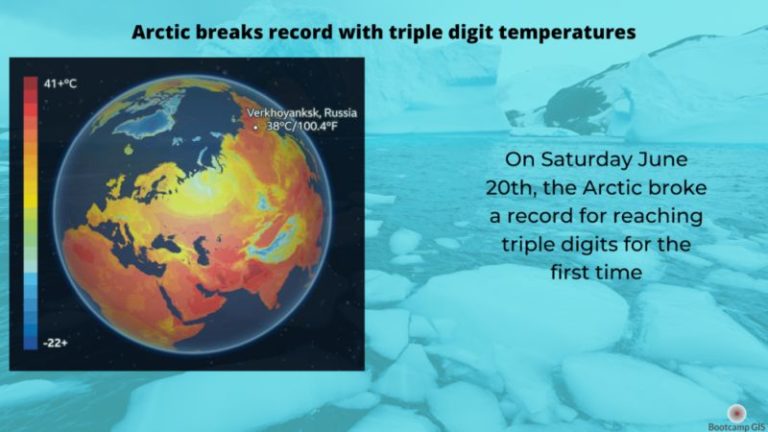
What can you do with an environmental science degree?
Environmental Science is a growing industry since people are becoming more aware about issues such as climate change. There are more job opportunities in this field than ever before. We’d like to tell you about the different career paths you can take as an environmental scientist, some entry level environmental science jobs, what the salaries look like, and how to make yourself a more competitive candidate in the market through certifications and learning technical skills online.
Careers with environmental science degree
So you are thinking about getting or maybe you already have an Environmental Science or Environmental Studies degree. These degrees will become more popular in the next decade as we place more emphasis and investment in studying climate change and pollution. But you wonder, what can I do with this degree? Environmental science explores topics like ecology, geology, and biology to understand environmental issues. It also studies the human impact on the environment. Professionals in this field often become scientists or researchers. However, others pursue environmental science careers in education, law, and government. An environmental scientist could work in the field and lab, or could also teach, write policy, or consult on the environmental impact of a company’s projects.
Entry level environmental science jobs
We would argue that most college degrees in Arts and Sciences offer general topical courses. To be the most marketable, you need to pursue an additional focus with applied skills and experience in one of the career areas we listed. Some of the jobs you can get with a environmental science degree include: environmental consultant, GIS analyst, field technician. These positions will require additional education, training, or certifications besides a bachelor’s degree. We advise all students that once you graduate, be prepared to take more classes!
- Environmental consultants offer expert advice to clients in regards to how to reduce a company’s overall carbon footprint and manage environmental issues. They may measure a client’s current levels of environmental contamination and create a project to manage them. Environmental consultants will often need to take a class in environmental law and policy.
- GIS Analysts build a database and perform analysis to geographically show where environmental issues exist. Originally, GIS databases were created only to assist cartographers and geographers; however, today, they are used for every engineering and construction project which all have environmental concerns.
- Field technicians go into the field and collect samples and fill out attribute information. They will be skilled at sampling methods and use of tablets, GPS units, or UAVs to collect information.
Skills for environmental science resume
While having an environmental science degree is a key milestone to get a job in the industry, it’s essential to possess some applied technical skills. An environmental scientist has to have knowledge of data collection and data analytics which often comes with learning GIS software. The best way to become marketable is to show that you have these types of skills that you used in a project workflow.
Shop around for online courses and certifications. They are common at many colleges. But if you don’t want to wait to take your coursework at the pace of college semesters, there are online options offered through commercial education platforms. Learning about geographic information systems is a great way to market your environmental science degree. The #1 applied GIS program is Bootcamp GIS which lets you become GIS certified in 6 months. Getting certifications in these disciplines can help you advance in your career and be a more competitive candidate.
Environmental science job salaries
Environmental Science is a growing industry. The salary for an environmental technician ranges from $15.00 an hour to as high as $35.20 an hour. Today, the average salary that environmental scientists earn across the United States is $72,444. The average salary for an environmental engineer is $80,489, and the average environmental field chemist earns $73,793. However, if you possess technical skills and are certified, your opportunities will increase. Learn more about the top environmental science companies and different certifications you can get to make your profile more marketable.
Conclusion
Careers in environmental science are becoming more popular as climate change and pollution are being addressed as a threat to the environment. It is a growing industry with many new job opportunities. The average salary of an environmental scientist is around $75,000 for an entry level job. However, to be a better candidate there are some technical skills required such as GIS applications or data science.
There are many educational options to improve your portfolio to gain more opportunities. The #1 applied GIS program is BootcampGIS which lets you get a GIS certificate in 6 months and qualify you for analyst positions with rising GIS job salaries. Getting certified in these technologies will help you to boost your skills and be a more competitive candidate.







